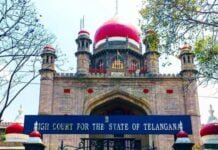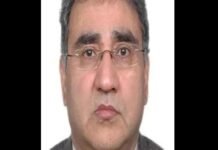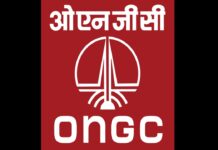The simmering squabble between Indian Railways’ officers from technical and non-technical backgrounds reached the ministry when general secretaries of five associations of engineers wrote a letter demanding that only officers with technical background be allowed to run the operations.
To buttress their point in the letter, dated August 12, representatives of the engineering wing termed non-technical officers as “low-ranking civil servants who enter service after several attempts and at an old age”, and demanded that only officers with technical background should manage the railways.
The development comes in the backdrop of the railway ministry’s plan to conduct a separate examination for Indian Railway Management Services (IRMS) to revamp railway bureaucracy and end the tussle between top rung officials from technical and non-technical backgrounds.
At present, recruitments to Indian Railway Accounts Service (IRAS), Indian Railway Personnel Service (IRPS) and Indian Railway Traffic Service (IRTS) are made through UPSC civil services examination while those for technical services are done through UPSC’s Engineering Services Examination (ESE)
The letter has five signatories at the level of general secretary of railway engineering associations like IRSEOA (Indian Railway Service of Engineers Officers Association),IRSEEOA (Indian Railway Service of Electrical Engineers Officers Association), IRSSOA (Indian Railway Store Service Officers Association) and IRSMEOA (Indian Railway Service of Mechanical Engineers Officers Association).
According to sources, the letter is a counter-argument to a letter submitted by general secretaries of IRTS, IRAS and IRPS associations to the principal secretary to the Prime Minister’s Office (PMO).
Non-technical officers have argued that merging or restructuring of all railway services into one service — Indian Railway Management Service (IRMS) — would be detrimental to the smooth operations of railways. They recommended dual structure of non-technical (IRTS, IRAS and IRPS) and technical services (engineering services).
At present, out of 16 general managers of railway zones, only three are non-technical. In the Railway Board, out of nine, only three senior officers have non-technical background.
“Railways is a technology-driven organisation and at present 72% of Group A organized services (IRSE, IRSME, IRSEE, IRSSE and IRSS) constitutes of core engineers recruited through Engineering Services Examination (ESE), while 28% officials of non-technical services (IRTS, IRAS and IRPS) are recruited through civil services examination out of whom 60% are also engineers,” the letter from technical officers said.
The engineering association recommended that recruitments for the entire IRMS should be done through ESE in which only engineers are recruited.
“UPSC may conduct separate examination for IRMS, on the lines of Indian Forest Services (IFS), where candidates may be asked to write the examination in their core competence. This will ensure that only those candidates enter the service who have consciously opted for IRMS. This will bring in willing officers rather than low-ranking candidates, who enter IRMS after several attempts and at an old age,” the letter added.
A senior railway official, who did not wish to be named, said: “This year, not a single person was recruited for IRMS, thanks to the engineering association lobby.
Engineers are recruited to ensure safety of railway operations, and if they occupy administrative posts, safety aspects will also get affected as there will be no check on them. Civil servants are trained to ensure good administration, while engineering service requires a different set of skills.”
“Court cases and summons are increasing as more administrative posts are being given to officers with a technical background. There are separate HR, operations & accounts wings in organizations to maintain checks and balances. If all these are merged, the entire system will collapse,” he added. (Source : TOI)



















